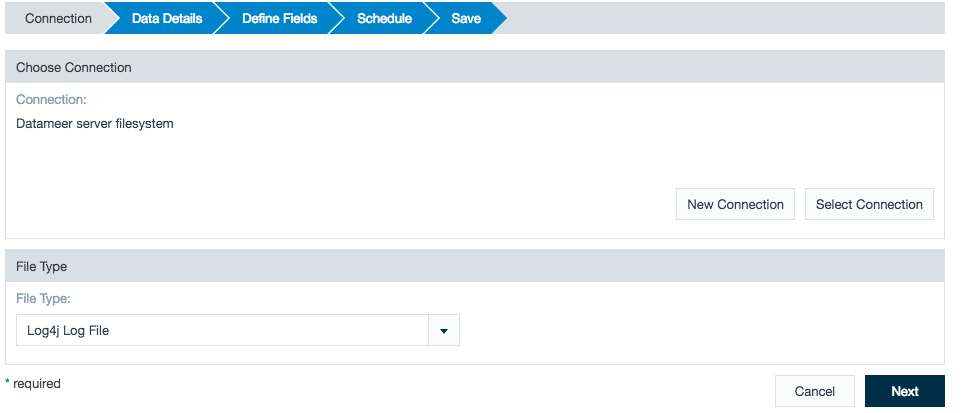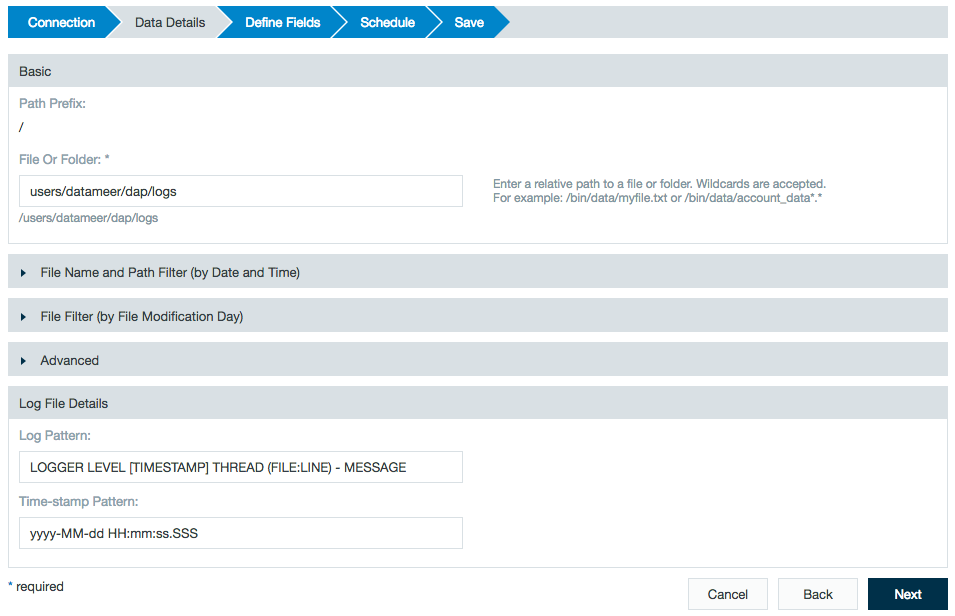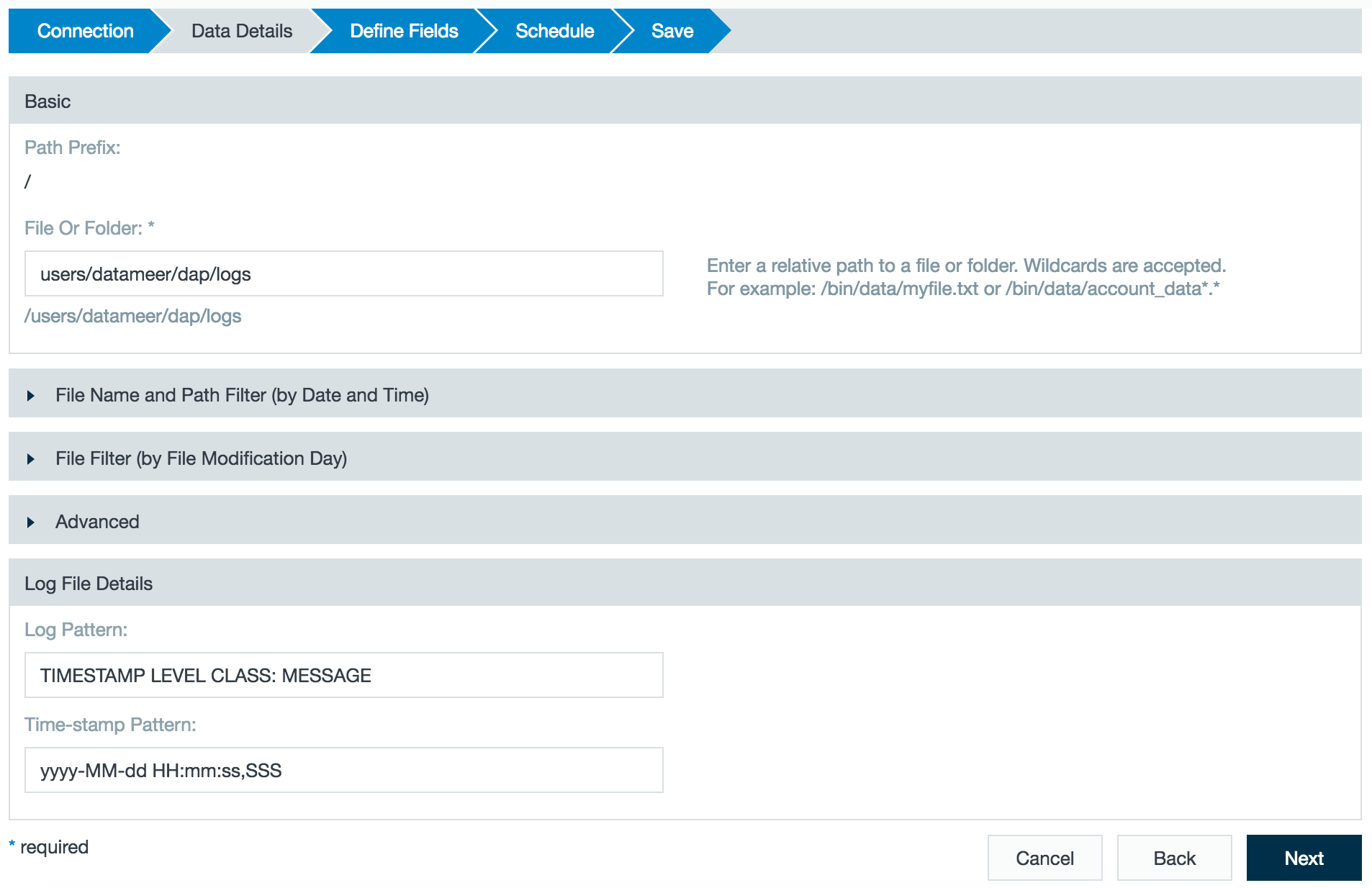/
Importing Log4j Log Files
Importing Log4j Log Files
Log4j is a popular logging package written in Java. One of its distinctive features is the notion of inheritance in loggers. Using a logger hierarchy, it is possible to control which log statements are output at arbitrary granularity. This helps reduce the volume of logged output and minimize the cost of logging.
Importing Log4j Files
- Open Datameer and create a new Import Job or File Upload.
- Select your connector where the Log4j log file is stored and then select the Log4j Log File data type.
- Select the log file to import.
In the Log File Details section, type in the log and time-stamp pattern. The log pattern should be provided using keywords, such as the following:LOGGER
MESSAGE
TIMESTAMP
NDC
LEVEL
THREAD
CLASS
FILE
LINE
METHOD
- PROP(<prop_name>)
- Review the sample data.
- Save and run the new import job or file upload.
Examples
Example parsing Datameer's conductor log
Log pattern example:
LOGGER LEVEL [TIMESTAMP] THREAD (FILE:LINE) - MESSAGE
Timestamp pattern example:
yyyy-MM-dd HH:mm:ss.SSS
Example parsing a hive log
Log patten example:
TIMESTAMP LEVEL CLASS: MESSAGE
Timestamp pattern example:
yyyy-MM-dd HH:mm:ss,SSS
, multiple selections available,
Related content
Importing Log4j Log Files
Importing Log4j Log Files
More like this
Importing Log4j Log Files
Importing Log4j Log Files
More like this
Log4j
Log4j
More like this
Log4j
Log4j
More like this
Log4j
Log4j
More like this
Rotating Datameer Logs
Rotating Datameer Logs
More like this


